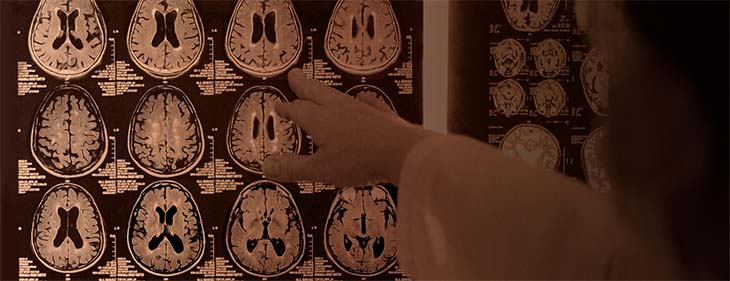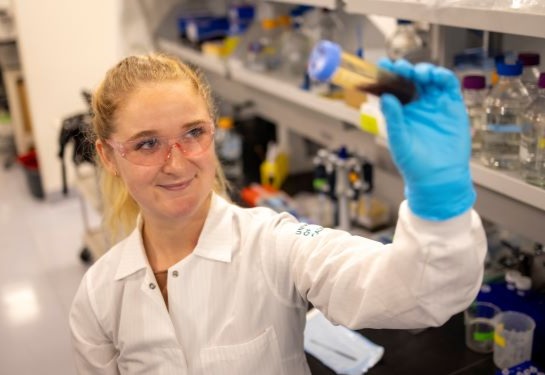Scientists hope to create a health ‘scorecard’ for dementia risk
Major study of diverse communities is looking at how brain changes and genetics contribute to dementia and Alzheimer’s
Quick summary:
- White matter hyperintensities (WMHs) in the brain are associated with an increased risk of dementia or cognitive impairment
- By age 82, most people have WMHs
- The researchers hope to learn more about WMHs and create a risk “scorecard” for developing Alzheimer’s disease or dementia
- Having a scorecard may identify ways to mitigate or delay dementia and Alzheimer’s disease
- Hispanic and Black Americans are at greater risk of Alzheimer’s and dementia
UC Davis Health, along with University of Texas Health Science Center at Houston (UTHealth Houston), is leading an important new study — Diverse Vascular Contributions to Cognitive Impairment and Dementia, or Diverse VCID. The study aims to predict who is most at risk for dementia or Alzheimer’s disease.
Participants who join the study will be helping researchers create a kind of risk “scorecard” with data from brain scans, genetics, and other key biomarkers.
“We may have insights that indicate a person’s risks are very low. Or maybe the person’s risks are very high, but there are contributing factors like diabetes or hypertension that we can address,” said Charles DeCarli, principal investigator for the study. DeCarli is a professor of neurology and the director of the UC Davis Alzheimer’s Disease Research Center. “We hope that having a risk profile will allow us to modify the risk and potentially prevent or delay the disease.”
Diverse VCID is funded by a $53.6 million award from the National Institutes of Health (NIH). It will go for six years and is being conducted at 13 different locations in 10 states.
We hope that having a risk profile will allow us to modify the risk and potentially prevent or delay the disease.—Charles DeCarli
White matter hyperintensities offer clues
Creating risk profiles for diseases is not new. It’s known that high blood pressure puts people at risk of stroke and that high cholesterol can put people at risk of heart disease and stroke.
With the new study, the researchers hope to create similar risk profiles that factor in what they learn about certain brain changes — known as white matter hyperintensities, or WMHs — along with genetics and other markers of overall health that can determine if a person’s risk is low or high.
At age 64, the chances that an MRI brain scan will show WMHs is between 11 to 21%. At age 82, the chances of having WMHs increase to about 94%. WMHs are thought to be caused by changes in small blood vessels in the brain. They are associated with an increased risk of developing dementia and cognitive impairment. But exactly how they might contribute is not known.

Gender and racial disparities in dementia and Alzheimer’s disease
According to data from the Alzheimer’s Association, approximately one in nine people ages 65 and older (about 11.3%) has Alzheimer’s disease. Of the estimated 6 million people with Alzheimer’s disease in the U.S., almost two-thirds, or about 3.5 million, are women.
There are also racial disparities:
- Older Black Americans are about one and a half to two times as likely as white Americans to have dementia or Alzheimer’s.
- Hispanic Americans are about one and a half times as likely as white Americans to have dementia or Alzheimer’s.
According to the Centers for Disease Control, cases are expected to quadruple among African Americans and increase seven times among Hispanic Americans over today’s estimates.
The study will be looking at diverse populations. The researchers are recruiting 2,250 participants from diverse backgrounds between the ages of 65 and 90.
“If you only enroll a certain group of society, we can't generalize to the entire group, which becomes a problem,” said Myriam Fornage, co-principal investigator for the study and a professor of genetics at UTHealth Houston. “Hopefully, we can be inclusive of a lot of people and have a broader picture and a better understanding of the disease for everybody.”
Lisa L. Barnes, a professor of neurological sciences at Rush Medical College, and Hector M. González, a professor of neurosciences at UC San Diego, are co-investigators for the study.
One of the study’s participants, Antonia Lopez, had a career in early childhood education before retiring. “My mother had Alzheimer’s. We knew there was a term called Alzheimer’s. We didn’t know the difference between that and normal aging. She motivated me. I hope that my participation will add to the knowledge and make a difference for the next generation,” Lopez said.


“I’m grateful to every participant who takes time to contribute to dementia research. I have dedicated my career to it, and I know we can make a difference,” DeCarli said.
To learn more about the study, including how to join, visit the study pages or the Diverse VCID website.
Participating centers:
- Alzheimer’s Disease Research Center, University of Southern California
- Columbia University Alzheimer's Disease Research Center
- Glenn Biggs Institute for Alzheimer’s & Neurodegenerative Diseases
- Johns Hopkins Alzheimer's Disease Research Center
- Michigan Alzheimer’s Disease Center
- New Mexico Exploratory Alzheimer’s Disease Research Center for Memory and Aging at the University of New Mexico Health Penn Memory Center
- Sticht Center for Healthy Aging and Alzheimer's Prevention
- UC Davis Alzheimer's Disease Center – Sacramento
- UC Davis Alzheimer's Disease Center – Walnut Creek
- UC San Diego Shiley Marcos Alzheimer’s Disease Research Center
- University of Kentucky Alzheimer's Disease Center
- Wisconsin Alzheimer’s Disease Research Center
This award is co-sponsored by the NIH’s National Institute of Neurological Disorders and Stroke and National Institute on Aging through grant 1U19NS120384.
The UC Davis Alzheimer's Disease Center
The UC Davis Alzheimer's Disease Center is one of only 33 research centers designated by the National Institute on Aging. With locations in Sacramento and Walnut Creek, the center is focused on translating research findings into better tools to diagnose dementia and treatment for patients while focusing on the long-term goal of finding a way to prevent or cure Alzheimer's disease. Also funded by the state of California, the center allows researchers to study the effects of the disease on a uniquely diverse population. For more information, visit ucdavis.edu/alzheimers/.




